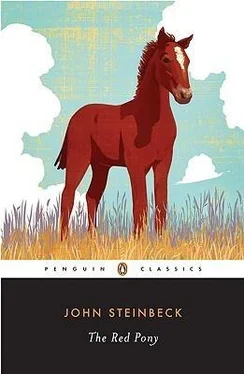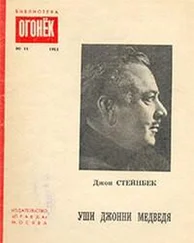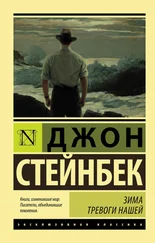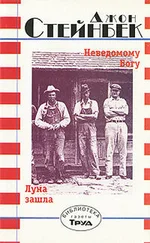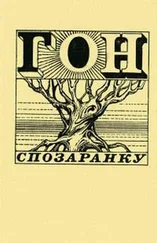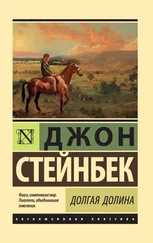JOHN STEINBECK The Red Pony
With an Introduction by John Seelye
Introductionby John Seelye
When I was a student in high school, Steinbeck was one of my favorite authors. He is a writer whose simple, straightforward language and realistic even violent plots are attractive to young readers making a first encounter with serious modern literature. I read Tortilla Flat , Cannery Row , Grapes of Wrath , even The Moon Is Down —the Second World War was just over and the issues were still fresh—but I did not read The Red Pony , which had recently been published as a single and amplified text, with color illustrations. I think the pictures may have put me off. They suggest that the series of short stories is a children’s book, which it is not—and more pertinent to my own youthful bigotries, they certified that it was a book about horses, a genre that for whatever reasons I associated with young females in jodhpurs and boots. The Red Pony is most assuredly not that, either.
So I was wrong on all scores, not the first time during my adolescent years—or afterward—and here at long last I have an opportunity to make up for that ignorant omission.
I would like to acknowledge my indebtedness to Jack Benson and Linda Wagner-Martin for their helpful and encouraging remarks concerning this introduction.
But let me begin by declaring that I have had considerable company in mistaking this book for something it is not, for in reading it the first time through I also consulted the critical literature on this text, which for the most part misconstrues what I take to be its meaning and intent, thanks to assumptions not too far different from my adolescent prejudices. I will come to that mistaken reading in due course (and proportion). What follows is not chiefly an argument with other critics. It is, however, an attempt to demonstrate that Steinbeck’s cycle of stories about a boy who has a series of painful even traumatic experiences on the threshold to adolescence may be a slender book, but in this it can be compared to the pin that holds two hinges together. Not only is it a text central to Steinbeck’s development as a writer but it is a transitional work in the development of literature intended for just the sort of reader I was when first encountering Steinbeck’s novels and stories.
The importance, in these dual regards of The Red Pony was hardly a matter of authorial intention. At the time he wrote the stories about young Jody Tiflin, Steinbeck was concentrating chiefly on getting through a very difficult period in his life. True, many of Steinbeck’s works were written during times of crisis, some of his own making, as if the author thrived on emotional turmoil, escaping into the much more tidy world of his own creation yet bringing along the heightened sensibilities that conflict engenders. But the author’s troubles during the time he was writing the Red Pony stories were thrust upon him and were primal in nature. His mother lay dying from the lingering effects of a stroke and his father, bewildered by the loss of his wife’s presence and support, was himself in a handicapped state, from which he would not recover.
Although already a published writer, Steinbeck was well short of the fame that would convey (against his will) the status of “author” upon him, and his financial affairs were still uncertain. He returned home to Salinas, the place of his birth some thirty years earlier, in 1902, bringing with him his young wife, Carol. Steinbeck took on his share of the duties in caring for his mother, which included changing bedpans and soiled linen, disgusting chores that nauseated him. He also helped out in his father’s accounting office, working up long columns of figures in ledgers, stultifying labor that dulled his creative sensibility. Between times, Steinbeck worked on the Red Pony stories, writing in a room next to the one in which his mother lay dying. Given the personal context—the threatened loss of parents who had supported him both psychologically and financially during his long apprenticeship as a writer—it is not surprising that the stories were autobiographical, drawing on Steinbeck’s memories of his childhood. What is surprising, however, is the artistry of the stories, evincing a formal mastery that would seem to bely the circumstances of their composition. It is this combination of subjective materials and objective craftsmanship that helps to explain the power of these parabolic tales.
The resemblances between Jody’s parents and Steinbeck’s own are not exact, and the ranch setting resembles the farm owned by his maternal uncle, not his home in the small town of Salinas, but there are sufficient points of tangency to certify an overall autobiographical presence. More important, perhaps, is the significance of the sheer presence of parents in the boy Jody’s world, not only as adult figures of support and understanding but as authorities to be dealt with often subversively, to be evaded by strategies of rebellion and escape. In a certain sense, the Red Pony stories are liminal, in that they deal with aspects of a boy’s maturation, but they stop well short of carrying Jody across the threshold into maturity, much as the long-desired pony of the title is taken from him before he has a chance to ride it. Given the conditions under which they were composed, we are not surprised to find the themes of loss and death dominating these stories. But the theme of withheld fulfillment is something else again, and has less to do with the immediate situation than with Steinbeck’s long-sustained world view, which may have had psychological origins but which by 1933, the year he returned to Salinas, was integral to his emerging theory of fiction and inseparable from his scientifically derived theory of human existence.
The device of incompletion is typical of much that Stein-beck would write, and is part-and-parcel of his biologically determined notions about animate life, but it should not be confused with what critics call indeterminacy or ambiguity. Life, observed Melville, one of our most ambiguous authors, does not organize itself into tidy periodicities; that is the role of literature. For Steinbeck, life and literature were reciprocal functions, and he regarded the duty of the author as one of devising fictions that captured the kinds of discontinuity that define life, both animal and human, which is made up of no final terminations, no neat packages of events, just a sequence of happenings productive of other happenings. Much as Jody continually contrives to escape the authority of his parents, so these stories subversively evade the traditional role of literature, which is to shape the raw, discontinuous stuff of life into orderly units chiefly defined by strategies of closure. In sum, art tames disorderly elements and puts them in harness, the fate the red pony escapes through death.
This reading, let me now state, is contradictory to the standard interpretation of these stories, which sees them as leading to Jody’s maturation, as stages in a developmental progress. I will return to that interpretation—and its impossibility—but want first to address Steinbeck’s life and work in general, so as to approach The Red Pony from that perspective. We may start with the irony that these stories, which so handily illustrate Steinbeck’s theories of life and literature, occurred within a turning point in the author’s life that resembles the most convenient kind of literature. The illness and death of his mother, followed shortly by the death of his father, were followed in turn by the sudden and almost unexpected upswing of the writer’s reputation and income, which were not perhaps as welcome as one might expect.
Читать дальше
